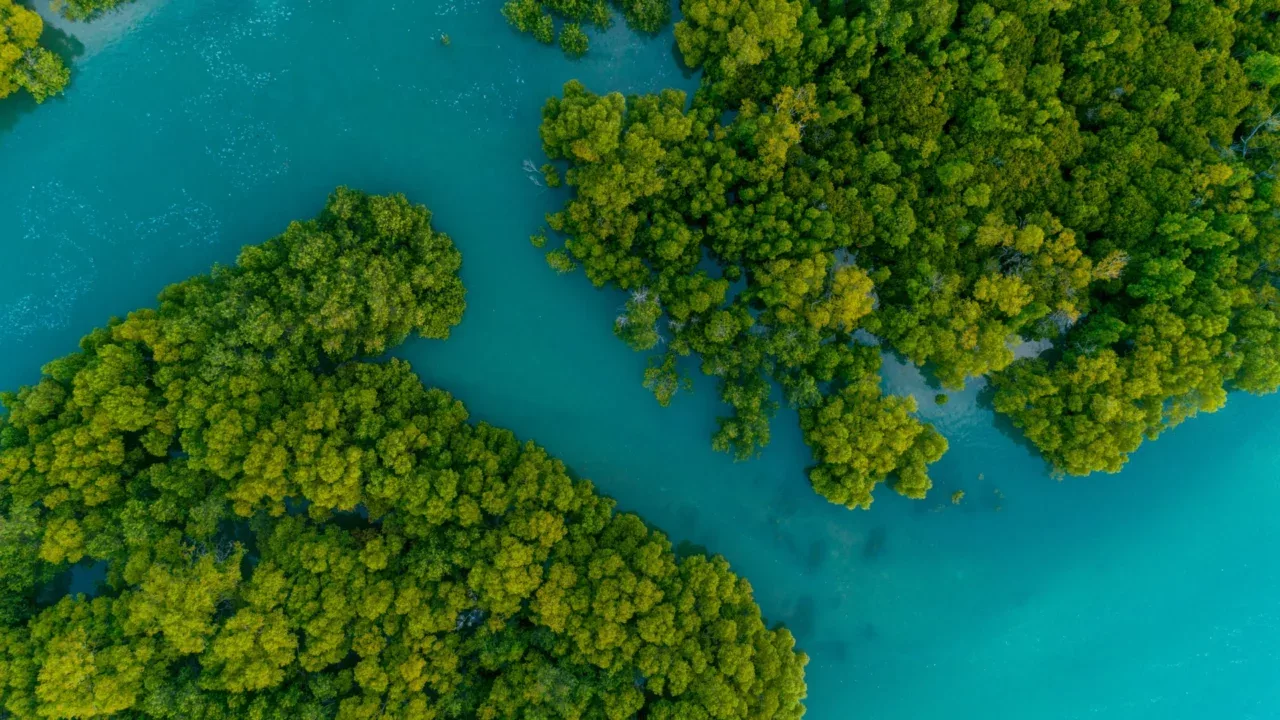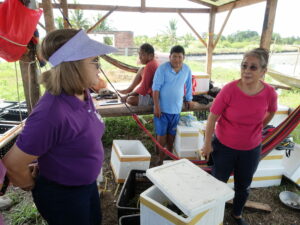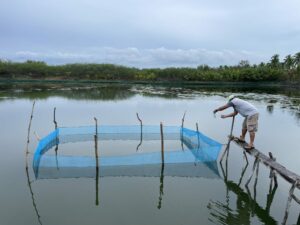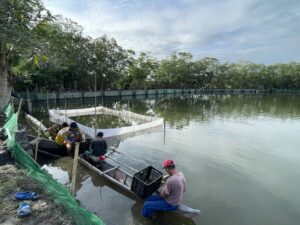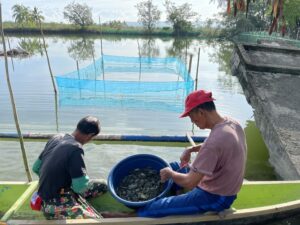Blue Alliance, one of the leading environmental organisations working to maintain and strengthen marine protected areas and blue economy across the globe, is proud to announce the launch of Aquahub Philippines, a pioneering company that integrates community-based aquaculture with Marine Protected Area (MPA) management. Aquahub focuses on preventing overexploitation of wild stocks of high-demand marine species, generating income for coastal households, and regenerating mangroves and seagrass beds. It capitalises on growing demand, supply chain inefficiencies, and sustainability concerns in the tropical aquaculture industry. The company is 100% owned by non-profit Blue Alliance.
Aquahub Philippines focuses on two high-demand tropical aquaculture species: sea cucumbers (Scabra sp.) and mangrove crabs (Scylla sp.). These operations combine advanced hatchery and processing infrastructure with community-driven sea ranching, promoting environmentally responsible farming practices in and around MPAs managed by Blue Alliance.
This investment is part of the Blue Finance impact loan facility, launched at COP16 in 2024 with initial commitments from BNP Paribas. The facility provides patient capital to reef-positive businesses with performance-linked returns based on environmental and social outcomes. It is designed for investors seeking long-term impact in marine biodiversity, climate resilience, and livelihoods.
Photo credit: Blue Alliance
Regenerating Ecosystems & Empowering Communities
As the official delegated manager of the MPAs, Blue Alliance enjoys strong central and local governmental support, including legal concessions for sea ranching farms. Local communities, already engaged through Blue Alliance’s livelihood programs, are enthusiastic partners in Aquahub ventures. Profits are transparently reinvested into MPA management, reinforcing trust and long-term sustainability.
The aquaculture operations also benefit from enhanced ecosystem services—such as improved coral reef health, seagrass density, and mangrove regeneration—resulting from ongoing conservation efforts.
Market-Driven Sustainability
The global sea cucumber market, valued at USD 1.38 billion in 2024, is projected to reach USD 2.19 billion by 2033, driven by culinary and medicinal demand in Asia. In dried and processed form, known as “Bêche-de-mer”, “Trepang”, or “Haisom” they command premium prices in East Asian markets, reaching up to USD 2,000/kg. Sea cucumbers are also gaining traction in nutraceuticals, cosmetics, and pharmaceuticals due to their bioactive compounds.
Mangrove crabs, prized for their flavour and resilience, are in high demand across Hong Kong, China, the U.S., and Singapore. The global crab market is expected to grow from USD 13.04 billion in 2025 to USD 16.17 billion by 2030. Aquahub’s sustainable hatchery-based production offers a scalable alternative to unregulated wild harvesting.
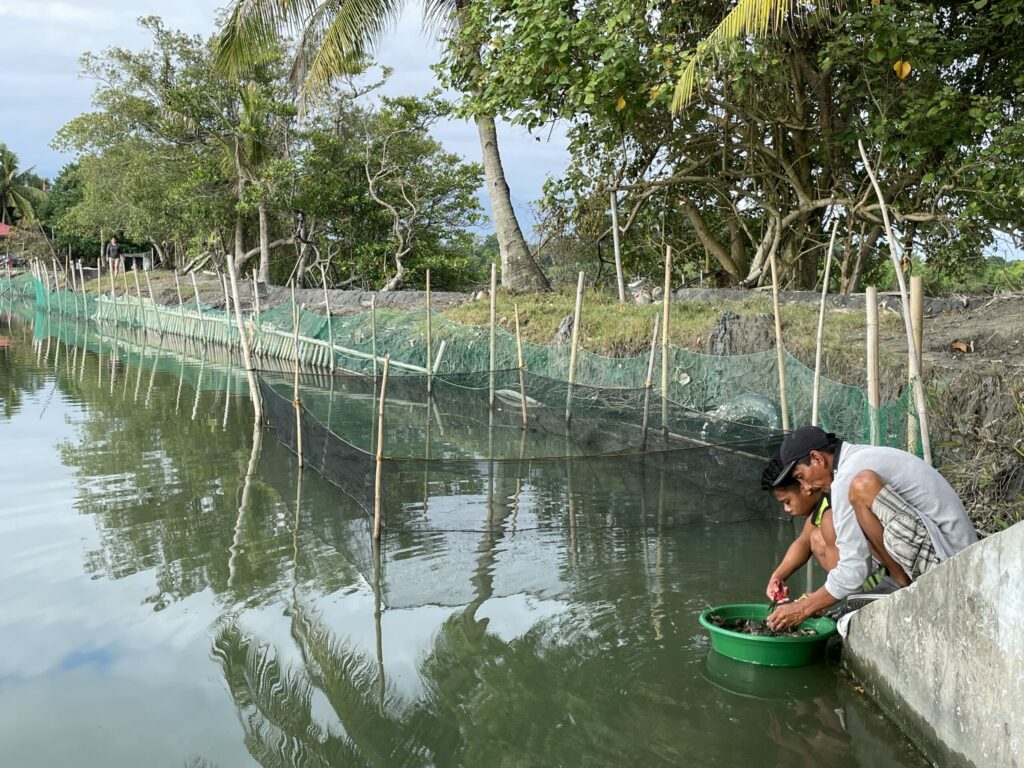
Roadmap for Aquahub Philippines
Aquahub Philippines is advancing two sustainable aquaculture ventures, sea cucumbers and mangrove crabs, through phased expansion in coastal communities. The sea cucumber program began with 12 hectares in 2025 and is set to scale to 100 hectares by 2028. The mangrove crab initiative, launched with a 15 hectare pilot in 2023, will expand to 180 hectares by 2034. Both aim for multi million in yearly revenue, sharing profits with communities and MPAs. Both projects are designed to scale sustainably, with first sales expected by 2026. The initiative also holds potential for generating blue carbon credits, offering an additional revenue stream for local communities.
Positive Impacts
Aquahub Philippines is designed to deliver measurable conservation and community benefits. The reef-positive business supports job creation, livelihood enhancement, and community empowerment by integrating coastal households into sustainable aquaculture operations.
Environmentally, the grow-out farms contribute to ecosystem regeneration:
- Seagrass beds are regenerated through the natural sediment bioturbation performed by sea cucumbers, improving habitat quality and nutrient cycling.
- Mangrove forests are regenerated and conserved through the establishment of mangrove crab farms, strengthening coastal resilience and biodiversity.
About Blue Alliance
Founded in 2015, non-profit Blue Alliance is one of the leading environmental organisations working to maintain and strengthen marine protected areas and blue economy across the globe. As of 2025, under long-term agreements with governments, Blue Alliance manages and finances 1.7 million hectares of coral reef ecosystems across large MPAs in Indonesia, the Philippines, and Tanzania and has developed a portfolio of 7 social enterprises in community-based aquaculture, sustainable fishery and ecotourism.
Photo credit: Blue Alliance
Source: Press release
